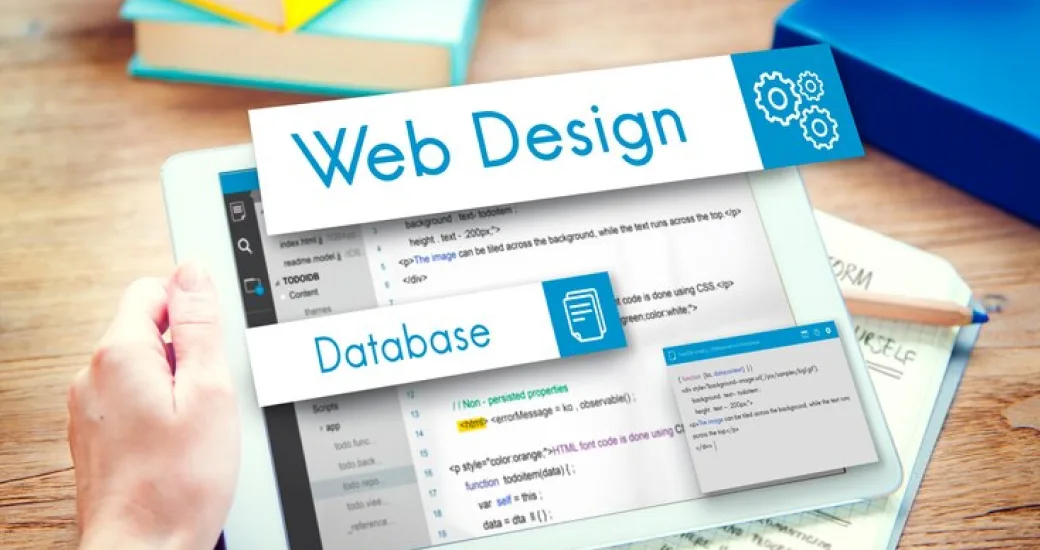In the digital landscape, where businesses' online presence plays a crucial role, choosing the right Content Management System (CMS) is paramount. A CMS serves as the backbone of your website, allowing you to create, manage, and scale your digital content efficiently. As your business grows, scalability becomes a key consideration. This blog post will explore the best CMS options for seamlessly scaling your website.
WordPress
When it comes to CMS, WordPress undoubtedly stands out as a leader. WordPress has a large community of developers and an extensive library of plugins and themes, making scaling your website a breeze. Its user-friendly interface allows even beginners to manage content effortlessly. WordPress is highly customizable, making it suitable for various businesses, from small blogs to large e-commerce sites.
Joomla: Versatility and Extensibility
Joomla is another popular CMS that offers a balance between flexibility and ease of use. It provides a robust set of features for building complex websites and applications. Joomla's extensibility allows you to add functionalities as your website grows. With a strong community and a range of extensions, Joomla is a reliable choice for those looking to scale their websites without compromising performance.
Drupal: Enterprise-Grade Scalability
For businesses with advanced needs and a focus on scalability, Drupal is a top contender. Known for its enterprise-grade capabilities, Drupal can handle complex websites and applications effortlessly. A modular architecture allows you to add features and scale your website as your business grows. While Drupal has a steeper learning curve than other CMS options, its robustness makes it suitable for large-scale projects.
Magento: E-commerce Excellence
When scalability in e-commerce is the primary concern, Magento shines as the go-to CMS. Acquired by Adobe, Magento offers a feature-rich platform for building and expanding online stores. Its scalability is apparent in its capacity to manage numerous products, transactions, and user interactions.
With a focus on performance and customization, Magento stands out as a robust option for enterprises aiming to expand their e-commerce endeavors.
Shopify: Simplifying E-commerce Scaling
Shopify has gained immense popularity as a user-friendly and scalable CMS, particularly for e-commerce businesses. Opting for a hosted solution, Shopify manages the technical intricacies, enabling you to concentrate on business growth. The platform provides various customizable templates, and its app store offers supplementary functionalities to effortlessly expand and scale your online store. For businesses prioritizing simplicity without compromising on scalability, Shopify is an excellent choice.
Wix: Scaling with Simplicity
Wix is recognized for its simplicity and user-friendly interface, making it an optimal choice for small to medium-sized businesses. While it may not have the extensive customization options of some other CMS platforms, Wix offers a hassle-free solution for those looking to build and scale their websites quickly. By offering a drag-and-drop editor and an assortment of templates, Wix simplifies the process of scaling your online presence.
Squarespace
Squarespace is renowned for its elegant design templates and user-friendly interface. While it may not be as feature-rich as some other CMS options, Squarespace provides a seamless experience for users looking to scale their websites with a focus on aesthetics. It proves to be an excellent option for artists, photographers, and small businesses aiming for a visually appealing online presence without sacrificing scalability.
Ghost
Ghost emerges as a streamlined and efficient CMS for those whose primary focus is blogging. Built explicitly for content creators, Ghost provides a minimalist yet powerful platform.
The scalability of the platform is apparent in its capability to manage substantial volumes of content while upholding high-performance levels. With a modern editor and a focus on publishing, Ghost is a fantastic choice for bloggers seeking a scalable platform without unnecessary complexities.
Contentful
Contentful represents a different approach to CMS with a headless architecture. Unlike traditional CMS platforms, Contentful separates the content from its presentation, allowing for greater flexibility and scalability. This headless approach enables developers to use their preferred front-end technologies, making it an ideal choice for businesses looking for a future-proof solution. Contentful's API-first design ensures seamless scaling as your digital projects evolve.
Kentico
Kentico stands out as an all-in-one CMS and digital experience platform, offering a comprehensive solution for businesses seeking scalability and versatility. With features like content management, e-commerce, and online marketing tools integrated into a single platform, Kentico simplifies scaling your digital presence. Its modular architecture allows for easy customization, making it adaptable to the changing needs of your business.
Next.js
One CMS that stands out in addressing the scalability needs of modern websites is Next.js, a powerful React-based framework. Next.js react with additional features tailored for server-side rendering (SSR), making it an excellent choice for businesses aiming to provide a fast and dynamic user experience.
When it comes to seamlessly scaling your website, Next.js offers inherent advantages, particularly in the realm of server-side rendering. SSR enhances the performance of web pages by pre-rendering them on the server before serving them to the client. This approach results in faster page loads and improved search engine optimization (SEO) – a crucial aspect for enhancing your website's visibility in search engine rankings.
Moreover, Next.js authentication is a vital component of many modern websites. The framework provides built-in support for authentication mechanisms and provides next.js environment variables, ensuring your users' data remains secure while offering a seamless and hassle-free authentication experience. This is particularly beneficial for businesses that prioritize user authentication and data protection.
If you are looking to improve your knowledge of Next.js, attending a next.js conference is a great way to learn about the latest updates and best practices. if you are working with a PostgreSQL database, you may be interested in learning about Next.js postgres support for this powerful open-source relational database system.
Scalability Considerations Beyond CMS
While selecting the right CMS is crucial, other factors contribute to the overall scalability of your website.
Performance Optimization
Regularly optimize your website's performance by minimizing code, compressing images, and leveraging browser caching. This makes sure that your site loads quickly, even as it grows in complexity.
Hosting Infrastructure
Choose a reliable hosting provider and consider options like cloud hosting for scalable resources. A robust hosting infrastructure ensures your website can handle increased traffic and data demands.
Security Measures
Implement powerful security measures to protect your nextjs website website from potential threats. As your site scales, becomes a more attractive target for malicious activities, making security a non-negotiable aspect of scalability.
Mobile Responsiveness
Ensure the effectiveness of your website, and prioritize mobile-friendliness, given the rising trend of users accessing the internet via mobile devices. Implementing a responsive design not only enhances user experience but also plays an imprtant role in bolstering the scalability of your website.
Regular Audits and Updates
Conduct routine audits of your website to pinpoint and address any issues. Stay vigilant in keeping your Content Management System (CMS) and plugins/extensions up to date, ensuring you leverage the latest features, security patches, and performance enhancements.
User Experience Optimization
Enhancing the user experience is pivotal for the scalability of your website, as it keeps visitors engaged organically and encourages them to dive deeper into the content. Optimize navigation, enhance page load times, and prioritize mobile responsiveness to improve overall user experience.
Conclusion
In conclusion, selecting the right CMS is crucial in building a scalable website, but it's not the only factor. Consider performance optimization, hosting infrastructure, security, mobile responsiveness, and user experience as integral components of your scalability strategy for nextjs latest version.
Every Content Management System (CMS) highlighted in this guide possesses its unique strengths, catering to diverse business needs and preferences. Whether you opt for the versatility of WordPress or next js react native website, the enterprise-grade capabilities of Drupal, the e-commerce focus of Magento, or the simplicity of Wix, the key is to align your choice with your business goals.
When it comes to building web applications, React and Next.js have become incredibly popular choices. However, if you are looking for Next.js alternatives, there are several options available in the market. Some of the popular ones include Gatsby, Nuxt.js, and Vue.js. Additionally, Next.js middleware and Next.js typescript can also enhance the functionality of your web app. It can help you handle HTTP requests, implement authentication, and perform other tasks. By leveraging the power of these technologies, you can create highly performant and scalable react next.js web applications.



